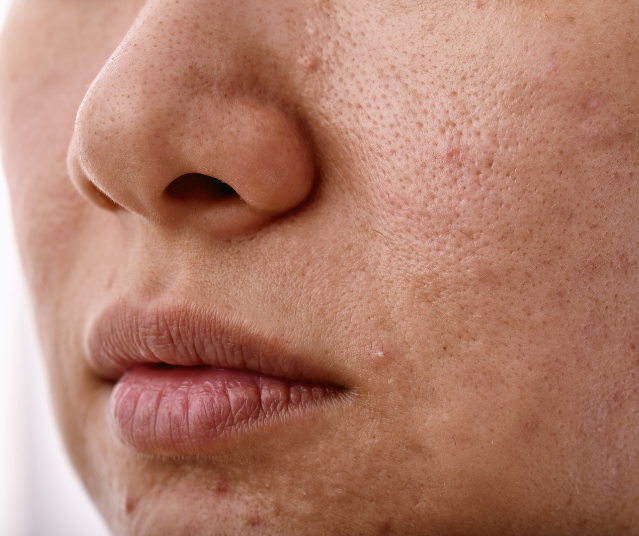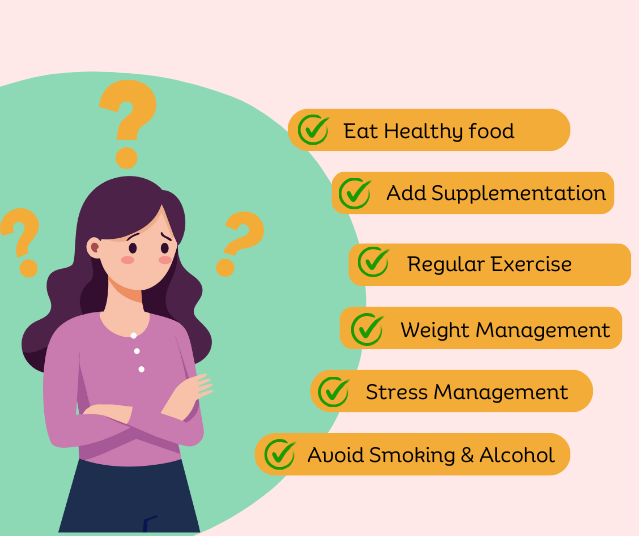
Polycystic Ovarian Disease (PCOD) is a common health issue affecting women worldwide. It can lead to various complications if not addressed promptly. Understanding PCOD is crucial for effective management and treatment. In this article, we will explore the symptoms, treatment options, and strategies for a healthier future.
Polycystic Ovarian Disease (PCOD), also known as Polycystic Ovary Syndrome (PCOS), is one of the most common hormonal disorders affecting women, particularly during their reproductive years. It affects approximately 5–10% of women worldwide and is often associated with a range of symptoms that can impact both physical and emotional well-being. While there is no definitive cure for PCOD, early diagnosis and appropriate PCOD treatment can help manage symptoms, improve fertility, and reduce long-term health risks.
In this article, we’ll explore the causes, symptoms, and available treatment options for PCOD, and how PCOD treatment can make a significant difference in managing the condition.
PCOD is a condition that occurs when the ovaries produce higher-than-normal levels of male hormones (androgens). These hormones can prevent the ovaries from releasing eggs regularly, which can disrupt a woman’s menstrual cycle, affect her fertility, and cause other symptoms like weight gain, acne, and excessive hair growth.
In addition to hormonal imbalance, PCOD is also associated with insulin resistance, a condition where the body’s cells become less responsive to insulin. This can result in higher insulin levels, which can contribute to weight gain, difficulty losing weight, and an increased risk of diabetes.
Polycystic Ovarian Disease (PCOD) is a common hormonal disorder that affects many women of reproductive age. It is caused by an imbalance in hormones that affects a woman’s menstrual cycle, fertility, and appearance. Understanding the symptoms of PCOD is essential for early diagnosis and finding the right PCOD treatment to manage the condition effectively. Below is a detailed look at the most common symptoms of PCOD and how PCOD treatment can help.
One of the hallmark symptoms of PCOD is irregular periods. Women with PCOD may experience:
PCOD treatment for irregular periods often includes hormonal therapies like birth control pills, which help regulate the menstrual cycle by balancing estrogen and progesterone levels. Progestin therapy may also be prescribed to trigger menstruation in women with infrequent or absent periods.
Women with PCOD often have elevated levels of male hormones (androgens), which can lead to hirsutism, or excessive hair growth. Common areas of excessive hair growth include:
PCOD treatment options to reduce hirsutism include anti-androgen medications like spironolactone, which block the effects of male hormones, reducing unwanted hair growth. Oral contraceptives can also help by regulating hormone levels and decreasing androgen production.
Elevated androgen levels in women with PCOD can lead to acne and oily skin. This condition is often worse during adolescence but can persist into adulthood. The acne is typically concentrated on the face, back, and shoulders.
To manage acne, PCOD treatment may include oral contraceptives, which regulate hormones and decrease acne-causing sebum production. In more severe cases, topical treatments like retinoids or antibiotics may be prescribed to reduce acne and improve skin appearance.
While not always causing symptoms, many women with PCOD have polycystic ovaries, which means the ovaries contain multiple small cysts. These cysts are actually follicles that have failed to release eggs during ovulation, leading to a buildup of fluid within the follicles. The cysts themselves do not usually cause pain but are a sign of hormonal imbalance.
If polycystic ovaries are causing fertility issues, PCOD treatment options such as ovulation-stimulating medications like Clomid (clomiphene citrate) or Letrozole may be recommended. These medications help stimulate the ovaries to release eggs and improve the chances of conception.
One of the most frustrating symptoms of PCOD is infertility, as the condition disrupts normal ovulation. Since many women with PCOD do not ovulate regularly or at all, this can make it challenging to conceive.
For women struggling with fertility due to PCOD, PCOD treatment often includes ovulation induction medications like Clomid, which help trigger the release of eggs. In some cases, more advanced treatments like in vitro fertilization (IVF) may be recommended if other treatments do not work.
Many women with PCOD experience weight gain, especially around the abdominal area. Insulin resistance, a common feature of PCOD, makes it harder for the body to process sugar, leading to weight gain and difficulty losing weight.
Managing weight through PCOD treatment involves a combination of lifestyle changes, such as following a low-glycemic diet to stabilize blood sugar levels and incorporating regular physical activity. Medications like metformin, which help improve insulin sensitivity, can also be prescribed to assist with weight management and reduce the risk of developing Type 2 diabetes.

Women with PCOD may develop skin tags, small, soft growths of skin that often appear on the neck, armpits, or under the breasts. Additionally, some women may notice darkened skin around the neck, groin, and underarms, a condition known as acanthosis nigricans. This darkening is often associated with insulin resistance, which is common in PCOD.
The best way to manage these skin changes through PCOD treatment is to address the underlying insulin resistance with medications like metformin and lifestyle changes. In some cases, treatments like laser therapy or cryotherapy can be used to remove skin tags.
Chronic fatigue is a common complaint among women with PCOD, often due to hormonal imbalances, poor sleep quality, or the physical and emotional toll of managing the symptoms of PCOD.
For women experiencing fatigue, PCOD treatment focuses on managing insulin resistance, improving sleep, and addressing emotional health. Regular exercise, stress reduction techniques, and dietary changes can also help boost energy levels and reduce fatigue.
Women with PCOD, especially those who are overweight or obese, are at a higher risk of developing sleep apnea, a condition where breathing temporarily stops during sleep. This can lead to poor sleep quality and daytime fatigue.
To manage sleep apnea, PCOD treatment often includes weight loss, lifestyle changes, and sometimes the use of a CPAP (Continuous Positive Airway Pressure) machine to help keep the airway open during sleep.
Hormonal fluctuations, particularly in estrogen and progesterone levels, can lead to headaches and migraines in women with PCOD. These headaches are often more severe during menstruation or when undergoing hormonal treatments.
PCOD treatment for headaches may include hormonal birth control, which helps stabilize hormone levels, as well as medications to manage migraine symptoms. In some cases, lifestyle changes like stress reduction, adequate hydration, and regular sleep patterns can help reduce headache frequency.
Read More : PCOD and PCOS
Diagnosing PCOD typically involves a combination of medical history, physical examination, and laboratory tests. Doctors may perform the following assessments:
A proper diagnosis is essential for determining the best treatment plan.
Effective treatment for PCOD focuses on managing symptoms and preventing complications. Various strategies can help improve overall health.

Adopting a healthy lifestyle can significantly impact PCOD management. Consider the following:
Several medications may be prescribed to manage PCOD symptoms effectively. These include:
Some women explore alternative therapies to manage PCOD symptoms. While research is ongoing, some popular options include:

In addition to lifestyle changes, certain nutritional supplements can support PCOD management. Some beneficial supplements include:
Education plays a vital role in managing PCOD. Women should seek support from healthcare professionals, nutritionists, and support groups. Staying informed can empower women to make informed decisions about their health.
Psychological support is crucial for women coping with PCOD Treatment. Speaking with a mental health professional can help address anxiety and depression associated with the condition. Additionally, group therapy can provide a sense of community and understanding among women facing similar challenges.
Joining a support group can be immensely beneficial. Sharing experiences and strategies with others can create a supportive environment. It can also reduce feelings of isolation. Many organizations and online communities exist, providing resources and encouragement.
Regular health check-ups are essential for women with PCOD. Monitoring hormone levels and overall health can help prevent complications. Healthcare providers can offer personalized advice based on individual needs.
Without proper management, PCOD can lead to several complications, including:
Healthcare professionals may recommend regular tests to monitor conditions associated with PCOD. These may include blood tests to check hormone levels, glucose levels, and cholesterol levels. Regular monitoring can lead to early detection and intervention.
Ongoing research into PCOD is crucial for developing new treatment options. Scientists are exploring the role of genetics, environment, and lifestyle in PCOD development. This research aims to create more effective strategies for management.
New therapies and medications are continually being investigated. This research holds promise for women with PCOD Treatment, potentially leading to more effective treatments with fewer side effects. Future studies may also uncover new insights into the underlying causes of PCOD.
Understanding the genetic factors contributing to PCOD can help identify at-risk individuals. Genetic studies may pave the way for personalized treatment plans, ensuring that women receive the most effective care.
Creating a supportive network is vital for women dealing with PCOD. Friends and family can play a crucial role in providing emotional support and encouragement. Communicating openly about the challenges of PCOD can foster understanding and compassion.
There are numerous online resources that provide valuable information about PCOD. Websites, forums, and social media groups offer access to a wealth of knowledge, helping women stay informed about the latest research, treatment options, and strategies for managing their condition. These platforms play a crucial role in supporting women as they navigate their PCOD treatment journey.
Beyond the physical symptoms, PCOD can have profound psychological effects. Many women face feelings of inadequacy, anxiety, and depression as a result of their symptoms. The societal pressure to meet beauty standards can be especially overwhelming, particularly when dealing with issues like weight gain and hirsutism. Addressing these emotional challenges is an important part of a comprehensive PCOD treatment plan, helping women manage both their physical and psychological well-being.
Addressing emotional well-being is a crucial aspect of managing PCOD. Engaging in activities that support mental health, such as journaling, pursuing hobbies, or practicing gratitude, can greatly benefit women with PCOD. Additionally, seeking professional counseling can offer valuable tools and strategies for coping with the emotional challenges associated with PCOD, complementing the overall PCOD treatment plan.
Education empowers women to take charge of their health, especially when it comes to PCOD treatment. Understanding the condition and its effects allows women to advocate for themselves in medical settings. With this knowledge, they can make informed decisions about the most suitable PCOD treatment options and necessary
Managing PCOD treatment is a lifelong commitment, not a one-time effort. Women need to stay proactive in their healthcare by continually educating themselves about the latest research and treatment options for PCOD. This ongoing awareness ensures they make informed decisions and effectively manage their condition over time.
Maintaining a healthy lifestyle is essential for the long-term success of PCOD treatment. This involves following a balanced diet, engaging in regular exercise, and effectively managing stress. Establishing a routine that incorporates these practices can significantly support PCOD treatment and help women lead healthier, more balanced lives.
Being part of a supportive community, whether online or offline, can be highly beneficial for women managing PCOD treatment. Sharing experiences, challenges, and successes with others creates a sense of belonging and provides valuable encouragement. This communal support is essential for staying motivated and committed to long-term PCOD treatment and overall health.
Every woman’s journey with PCOD is unique, which is why a one-size-fits-all approach to PCOD treatment may not be effective. Treatment plans should be personalized to address each woman’s specific symptoms and needs. Collaborating closely with healthcare providers ensures that the most appropriate and effective treatment options are identified and tailored to individual circumstances.
Collaboration with doctors, nutritionists, and mental health professionals is essential in managing PCOD. These experts can work together to develop a comprehensive PCOD treatment plan that addresses both physical and emotional health. Regular consultations help ensure that the treatment strategies evolve in response to the woman’s progress and changing needs.
Keeping a journal or using apps to track symptoms can help women and their healthcare teams assess the effectiveness of their treatment plans. This information can guide necessary adjustments to medications, dietary changes, or exercise routines.
In conclusion, managing PCOD requires a multifaceted approach. It involves lifestyle changes, medication, psychological support, and regular monitoring
PCOD is a manageable condition that requires awareness and proactive treatment. By understanding symptoms, exploring treatment options, and adopting a healthier lifestyle, women can lead fulfilling lives. Regular check-ups and support from healthcare professionals play an essential role in this journey. Remember, you’re not alone. Many women are navigating similar challenges.

Aenean eu leo quam. Pellentesque ornare sem lacinia quam venenatis vestibulum. Donec sed odio dui.